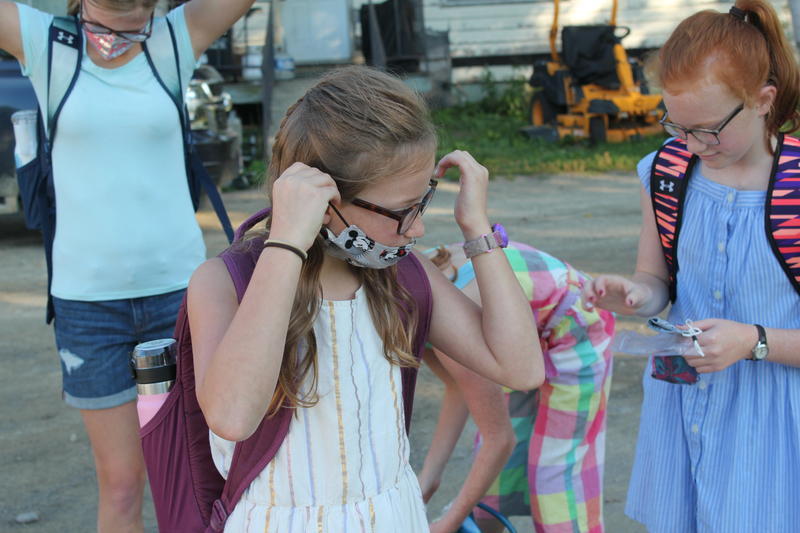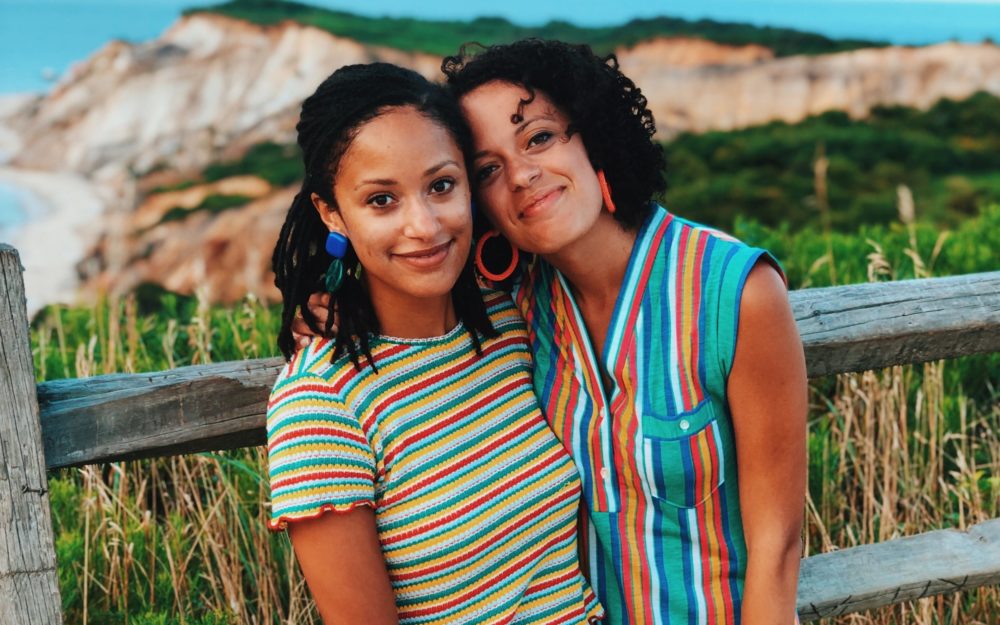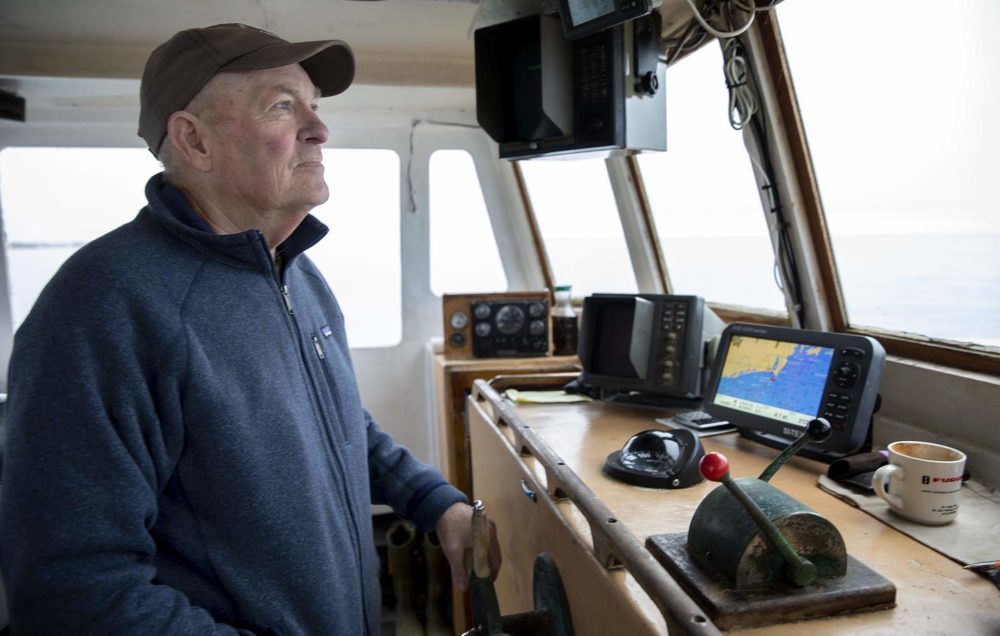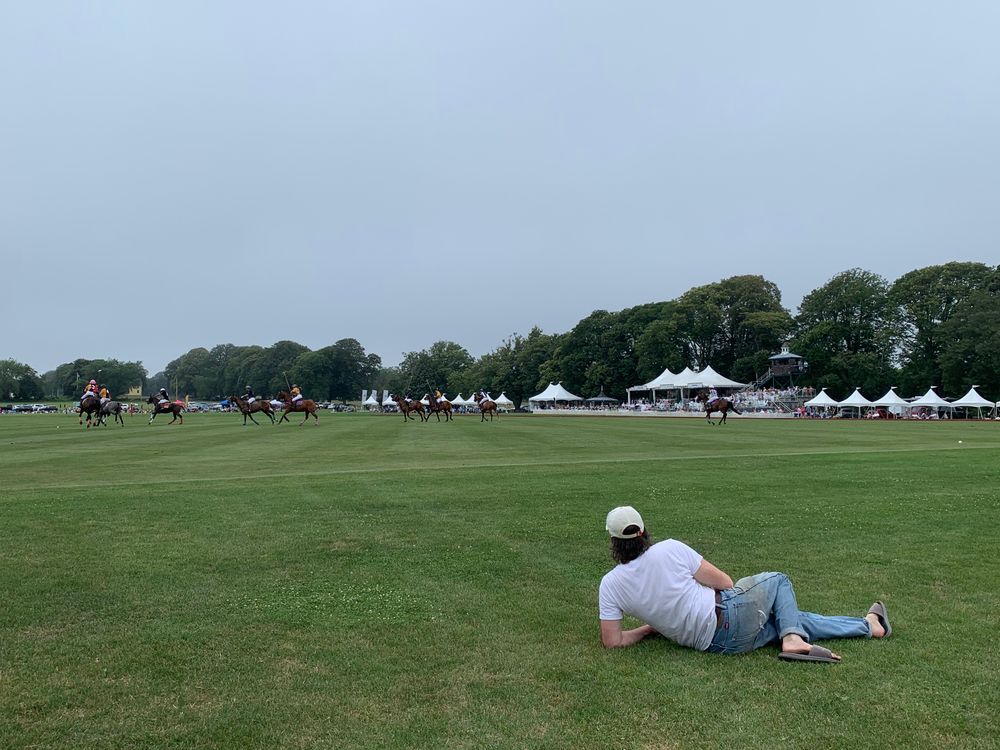Episode 212: Early Lessons As Rural Maine Returns To School; Challenging Hometown Culture Of Silence Around Racism
Most New England schools are still fine-tuning their reopening plans. This week on NEXT, we visit a school in northern Maine that has started the year early — and hear about the lessons learned so far. Plus, two sisters re-examine the racism they experienced growing up in a predominantly white Massachusetts town. And we hear from early survivors of COVID-19 about their long recovery process.
Some Rural Schools In Northern Maine Resume Classes Amid Pandemic

Students get ready for a day of in-person class at Mars Hill’s Fort Street Elementary School. A few communities in northern Maine have already reopened. (Robbie Feinberg/Maine Public)
We’re inching closer to students returning to school in New England. While most districts are still putting the finishing touches on their reopening plans, a few communities in northern Maine have already welcomed back teachers and students this month. They started early to accommodate a fall break for the potato harvest. Maine Public Radio’s Robbie Feinberg visited one of those districts in Aroostook County for a preview of what school might look like for others this fall, including temperature checks at the door, mask-wearing in the classroom and regularly washing hands and disinfecting.
“I was really excited to go back to school. It’s a lot different, but I’m glad to be back to see all my friends and all the teachers and everything,” said Charlie Pierce, a sixth-grader at Mars Hill’s Fort Street Elementary School.
Sisters Challenge Culture Of Silence About Racism In Their Massachusetts Hometown

Emily and Caroline Joyner grew up in the predominantly white town of Southborough, Mass. (Courtesy Caroline Joyner)
As the racial justice movement continues, Black people across the country are sharing their stories of experiencing racism in everyday life. Among them are sisters Emily and Caroline Joyner, who wrote a blog post about growing up in the predominantly white suburb of Southborough, Massachusetts, where “insidious racism” was pervasive.
“That white-centered perspective can get so internalized,” Emily Joyner told WBUR. “As a Black person who grows up there, you learn, ‘Yeah, I’m other.’”
WBUR’s Khari Thompson reports on the sisters’ push to challenge small towns like theirs to acknowledge and confront local issues around race.
Fishermen And Scientists Join Forces To Track Effects Of Climate Change

Lobsterman Mark Sweitzer steers his boat, the Erica Knight. (Robin Lubbock/WBUR)
Fishermen and scientists haven’t always gotten along. Fishermen worry that scientists will dismiss their knowledge as “anecdotal” and want to over-regulate the industry. Meanwhile, scientists say hard data is needed to use the ocean responsibly.
“There was always this perception that scientists would collect data from fishermen and then use it against them,” said lobsterman Mark Sweitzer. “There was always that perception that they weren’t going to listen to anything you said.”
But, WBUR’s Barbara Moran reports, as climate change rapidly alters the ocean, more scientists and fishermen are working together. And the cooperation is starting to pay off — even in the middle of a pandemic.
“This data might not be directly influencing how I lobster the next two or three years, whatever I got left in the business,” said Sweitzer, “but it’s going to help somebody.”
A Classic Sport Draws New Fans Hungry For A Game During COVID-19

Clark Curtis, a fellow player with Newport Polo, reclines as he watches the game. (Antonia Ayres-Brown/The Public’s Radio)
Fans aren’t allowed at Boston Red Sox games, and the only way you can see the Celtics compete in the NBA playoffs is on a screen. But there is a sport in New England that fans can attend in-person: Polo.
Polo has been in full swing this summer in Newport, Rhode Island, and it’s open to spectators — as long as they wear a mask and comply with social distancing.
“I’m very conscious that obviously a lot of people go, ‘Polo? You know, what are the rules? How does this work? People on horses playing hockey? What’s this all about?’” said commentator William Crisp.
Antonia Ayres-Brown of The Public’s Radio went to a game to find out.
NEXT Wants to Hear From You:
Last week on NEXT, we asked what you think about the state of activism today. We wanted to know how you personally hold people accountable for insensitive or racist comments, or at least how you’re trying to do so. We got an email from listener Marianne Ward from Burlington, Vermont, who said she does not think that’s her responsibility.
“Why does anyone think they have a right to ‘hold anyone accountable’ for their speech? People do have the private right to believe as they do and speak as they wish. Don’t they?”
So what do you think? Are you more inclined to speak up when someone says something you think is insensitive? Or — like Ms. Ward from Vermont — do you think that’s not your place? Leave a voicemail on our comment line: 860-275-7595. Or send us an email at next@ctpublic.org.
And a special request: In this time of reflection, we want to know what you think about NEXT. Please take our quick survey to tell us what you like about the show and where we can improve. Looking forward to hearing from you.
Also On This Week’s Show:
- Survivors Of COVID-19 Share Their Ordeal So Others Take Precautions Venturing Out (NEPM)
- Addiction Harm Reduction Providers Battle ‘Dual’ Epidemics (Connecticut Public)
- Towns Struggle with Costs as ‘Corona-Recycling’ Increases by 20% (WCAI)
- In A Time Of Social Distancing, A Movie Theater Gives It A Go (WGBH)
About NEXT
NEXT is produced at Connecticut Public Radio
Host/Producer: Morgan Springer
Executive Editor: Vanessa de la Torre
Senior Director: Catie Talarski
Intern: Daniela Luna
Contributors to this episode: Robbie Feinberg, Karen Brown, Nicole Leonard, Khari Thompson, Barbara Moran, Eve Zuckoff, Craig LeMoult and Antonia Ayres-Brown.
Music from New England musicians: Todd Merrell, “New England” and “Pushback” by Goodnight Blue Moon, “On My Way To You” by Noelle Micarelli, “Get By” by West End Blend and “Tracphone” by Latrell James.
New to NEXT? You can find every episode or one you missed within our archives.
We want your feedback! Send critiques, suggestions, questions and ideas to next@ctpublic.org. Help us spread the word! If you like what you hear, rate and review us on iTunes.
